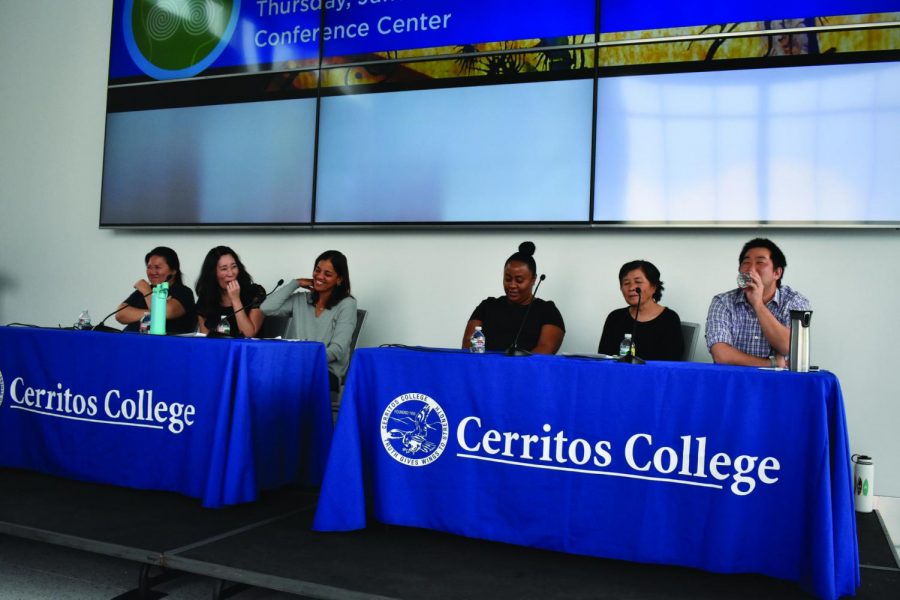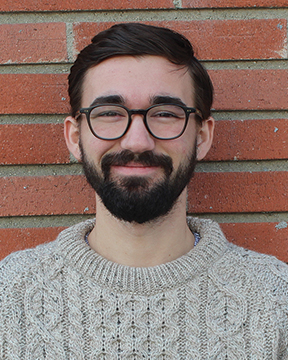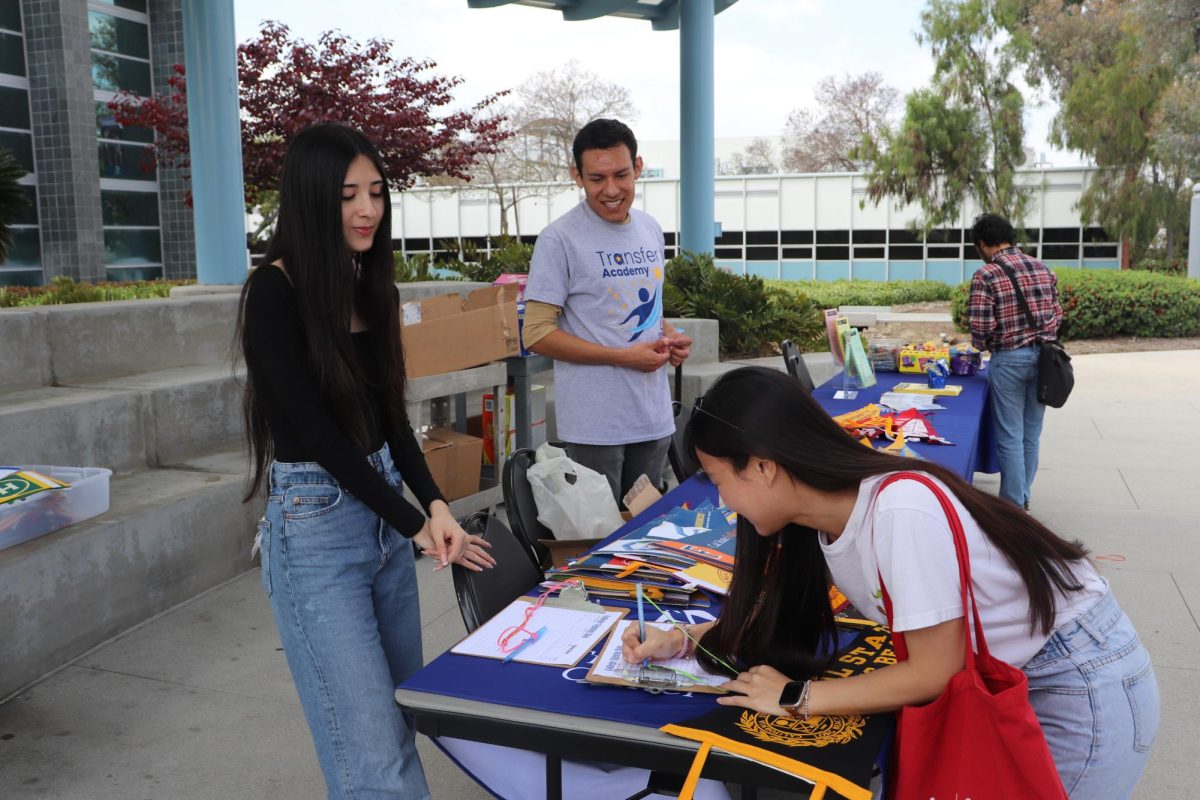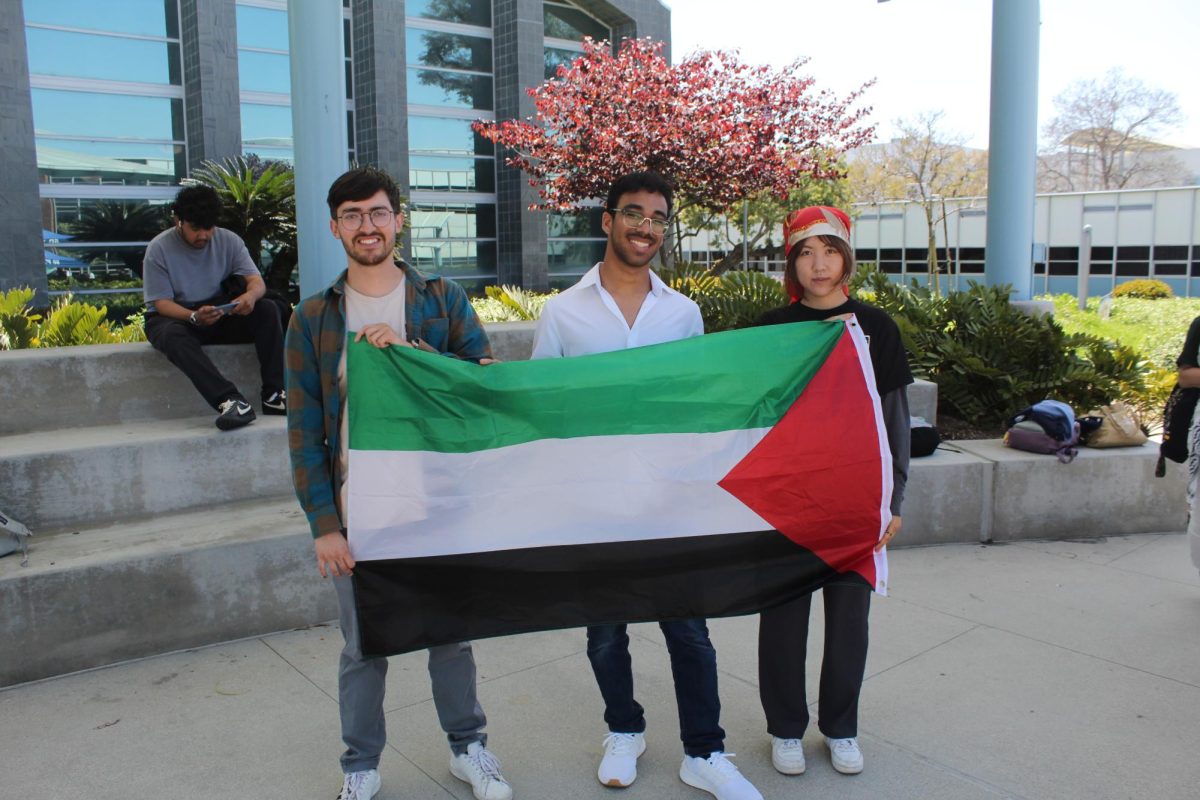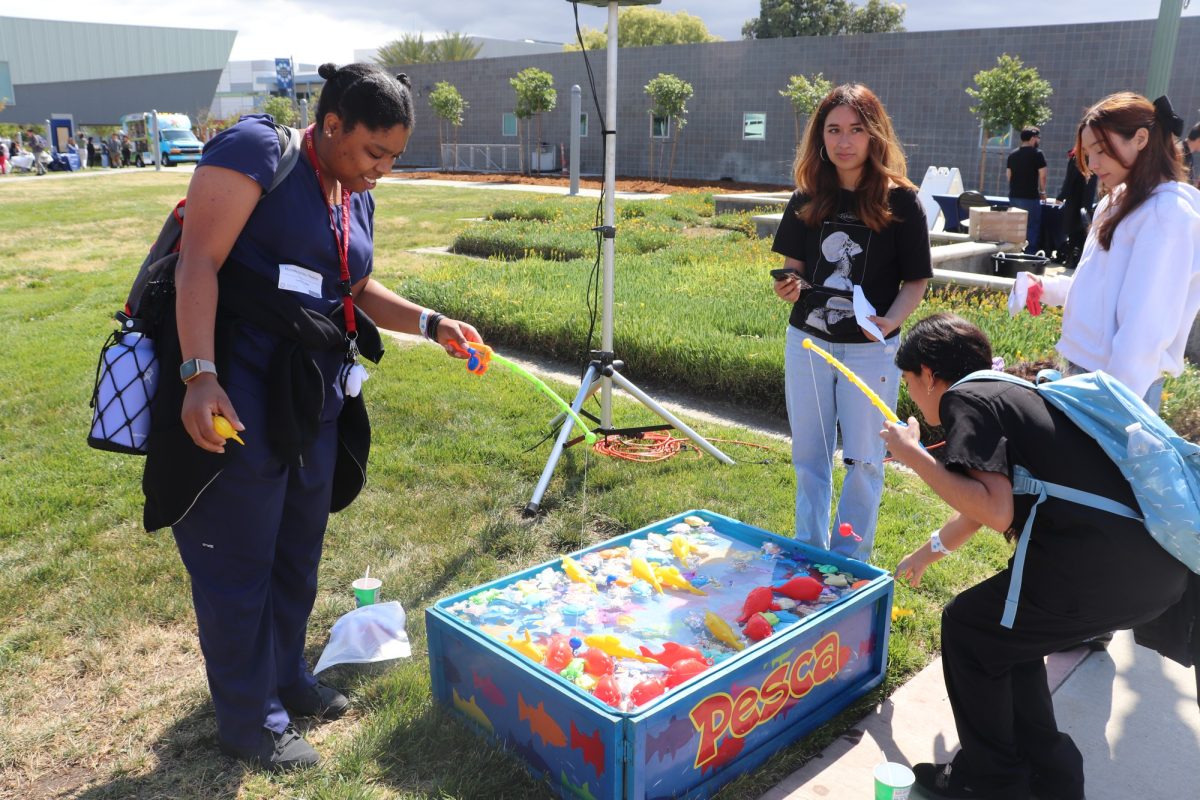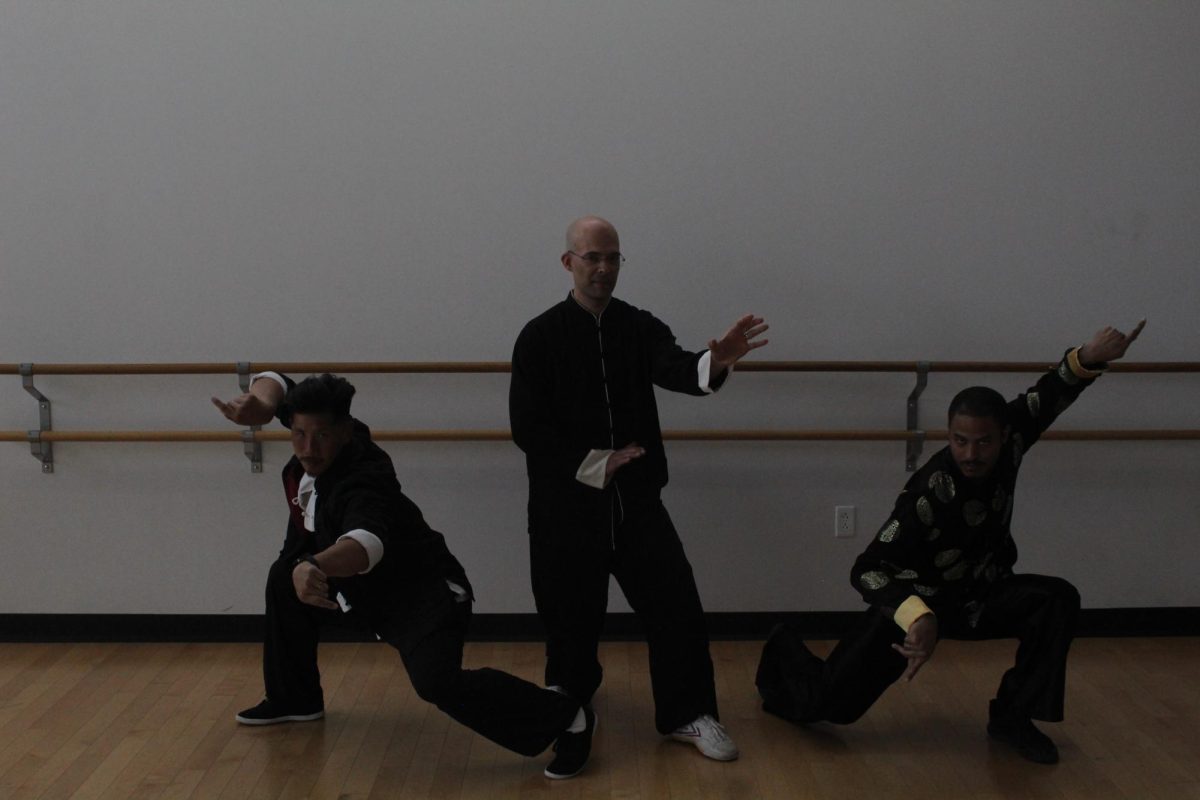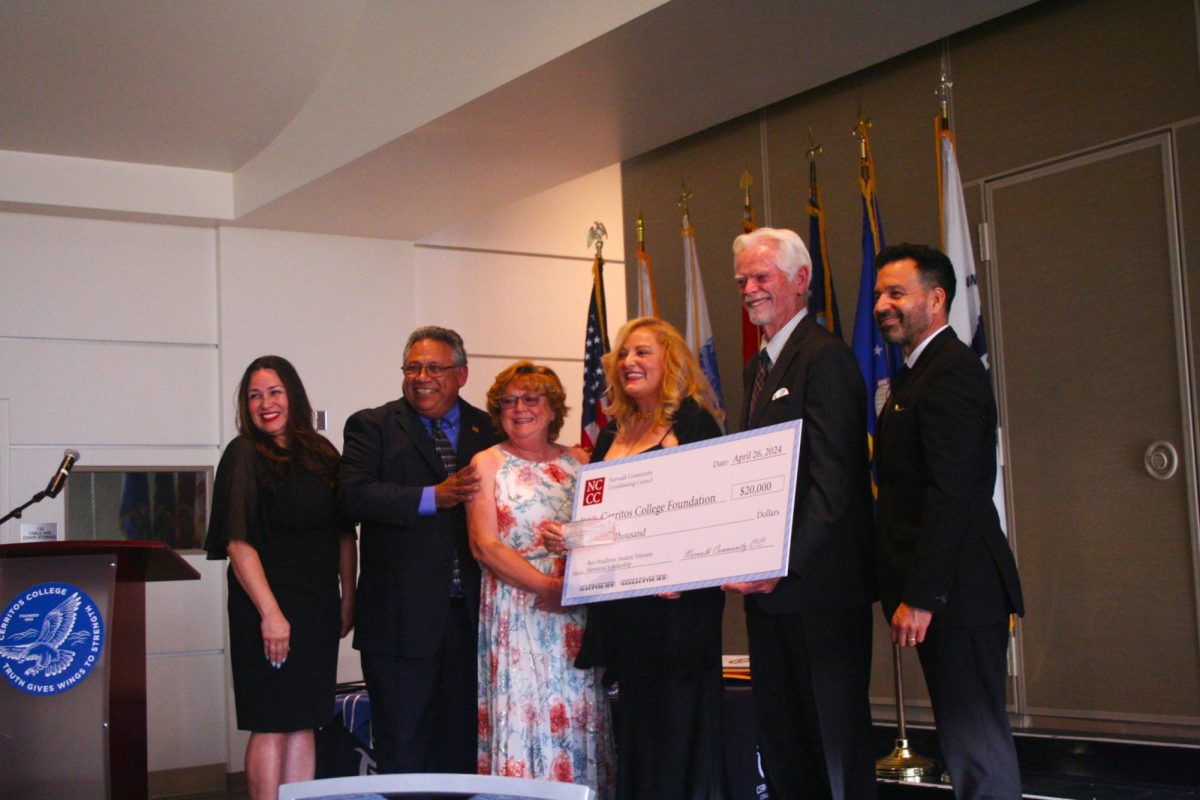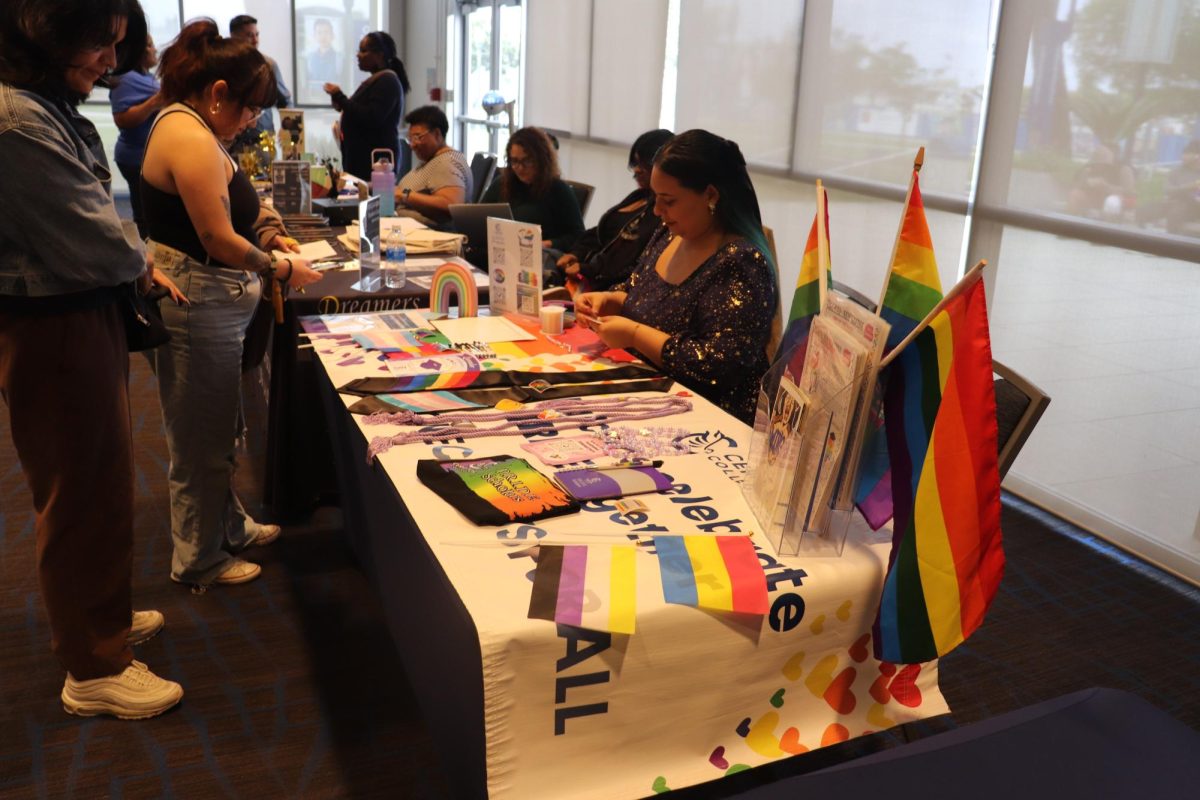Stories of resilience and diversity were shared by six Cerritos College faculty members for Asian Pacific Islander Desi American Awareness Week.
This collection of Cerritos professors, advisors, and administrators related their experiences to a crowd attending the APIDA Faculty and Staff Spotlight held in the Conference Center at Cerritos on Jan. 30th.
APIDA (which has added an extra A for affiliates) “aims to support Cerritos College’s mission… to the life-long learning goals” of APIDA “students, community members, and… employees” according to Dr. Valyncia Raphael, Cerritos College Title IX coordinator, who served as moderator for the event.
APIDA Week featured multiple events on Cerritos’ campus throughout the week of Jan. 27th with the Faculty and Staff Spotlight rounding out the week.
The staff panel was made up of Annabel Horton, financial aid advisor; Mark Katayama, research analyst and planner; Dr. Shin Liu, Cerritos trustee; Nishi Shah, English professor; April Shin, DSPS program assistant; and Career Services counselor Traci Ukita.
Raphael asked the panel to describe their identity and cultural experiences, careers, and life path leading them to their current positions at Cerritos.
Shin shared her experience of growing beyond her family’s expectations of “work(ing) in the medical field” into her role at DSPS in “training students… to develop their independence and independent living skills.”
She says she “struggled with her identity” as Korean American following the 1992 LA Riots but starting to “learn more about her culture” after entering college.
Echoing Prof. Shah’s description of her treatment following the events of Sept. 11th, 2001, Shin said she became more aware of the “big picture situation” of how she and her friends stereotyped her based on her race.
Annabel Horton also dealt with stereotyping while growing up. “Ever since I was little, it was a struggle for me,” she said, “I didn’t look like my Filipino side, I looked like my African American side.”
Horton, who identified as biracial, was raised primarily by her Filipino mother as her Black father served in the US military.
Despite speaking Tagalog as her first language and seeing herself as more than just a skin color, she was “teased… and didn’t have friends” which “hurt” her growing up.
Until she “met other biracial friends” she didn’t know who to turn to. Now, after further embracing her dual cultures, Horton says “she wouldn’t change (being biracial) for the world.”
Cultural similarities and differences among the APIDA community were highlighted in different ways by the panelists.
Nishi Shah and Dr. Shin Liu shared similar resistances from their family over their perceived breaking of traditional family roles.
Shah, who identifies as first generation Indian American, was “expected” by her parents to “go into the field of business” but always felt a “big athletic identity.”
Due to her parent’s “strict” ideas about relationships and the role of women, it was “hard for them to accept” her marrying outside her race. They discouraged her “dream of being in the Olympics” and competing in sports like basketball but supported her brother’s similar ambitions.
Dr. Liu shared her similar experiences of sexism as a Chinese American. According to Liu, “the older generation” believe that “daughter(s) do not have equal value as a son.” This traditional view is “a struggle I have with my own culture,” Liu says, “I don’t like it… and I will (make every) effort to change it.”
Shah shared this sense of struggle and resilience: “I’m an extremely… motivated person… If someone discourages me, I use that as motivation to achieve those dreams.”
Mark Katayama and Tracy Ukita both highlighted their similarities as Yonsei (4th generation) Japanese American and described the wide variety of experiences for Japanese Americans.
“One of the things that really unites (the Asian community) most… is “perpetual foreigner syndrome,” Ukita explains. But, she says, “the generational differences” has to do with “the mass incarceration of the Japanese American community during WWII.”
Katayama’s family was interned during the war and both he and Ukita had family members “stifle their Japaneseness” as a result.
“My dad was born in the internment camp and my grandpa… refused to sign the orders from the American government,” Katayama said. “This ties into (my) resiliency.”
Katayama says there is an “assimilation process that is… being passed down… this generational line” but he hopes to pass on his unique Japanese culture and resilience to his daughter. “I have my parents and grandparents to thank for that.”
The celebration of diversity and culture will continue with various events held on campus for Black History Month this February. See talonmarks.com for future coverage.





